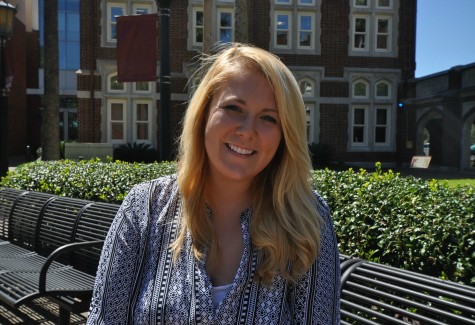New Orleans has long been suspected as a center for human trafficking, but with a lack of public attention and knowledge, it has gone undetected. Loyola students and Assistant Professor of English Laura Murphy want to change this.
With the FBI’s recent crackdown on child prostitution across the nation, attention has been brought to this issue of human trafficking.
Murphy, who teaches freshmen seminar class, “Bought and Sold: Slavery and Abolition in the 21st Century,” is on a mission to educate the public on this issue, just as she was once educated on the issue.
“My research on historical slavery led me to a New York Times article on modern slavery. After I realized that slavery still exists in the 21st century, I knew I could not look away,” Murphy said. “My research and activism turned toward working to eliminate the worst forms of labor exploitation.”
Her battle against slavery began in 2004. She is the adviser of the Free the Slaves student chapter at Loyola, and is the national chapter coordinator for the organization. Her position provides to lead the student abolitionist movement.
Loyola students like Saramaile Tate, English writing junior, have joined Murphy in this combat. After taking Post Colonial Literature with Murphy, Tate said she grew to respect Murphy and the work that she did. When Murphy asked Tate to participate in her research efforts, she didn’t hesitate to say yes.
“Simply through my desire to work more with Dr. Murphy did the issue of human trafficking come into my life,” Tate said.
Tate became inspired by Murphy’s passion about an issue that she said usually goes unnoticed. Murphy is in the process putting together a book of narratives that survivors of modern day slavery have written about themselves.
“My book suggests that the slave narrative has re-emerged as a venue through which survivors of human trafficking can articulate their experiences of captivity and press for political action. The book looks at the cultural, political, social and religious impetuses that have driven the re-emergence of the genre,” Murphy said.
Murphy explains that trafficking victims are a hidden population because of the illegality that occurs. The traffickers who hold them captive do so illegally, which makes trafficking difficult to detect. Murphy said that trafficking is also complicated by the fact that victims may choose to do agricultural labor or work in the sex trade; but once they get a job, it turns out that their bosses steal all their wages, violently abuse them and hold them captive. Murphy was thrilled to hear about the recent FBI trafficking sting, and hopes law enforcement will become more vigilant in the future with adult slaves.
“My goals are for us to be even more vigilant and attentive to grown men and women in both the sex trade and other forms of labor who are being forced to work without pay as well,” Murphy said. “I hope that people don’t begin to think that only children are being exploited in trafficking.”
Both Murphy and Tate urge Loyola to join them in this fight for freedom. They recommend joining the New Orleans Human Trafficking Group, through which students can participate in activism and research projects that are helping to understand and fight trafficking in the region.
Melanie Potter can be reached at [email protected]







